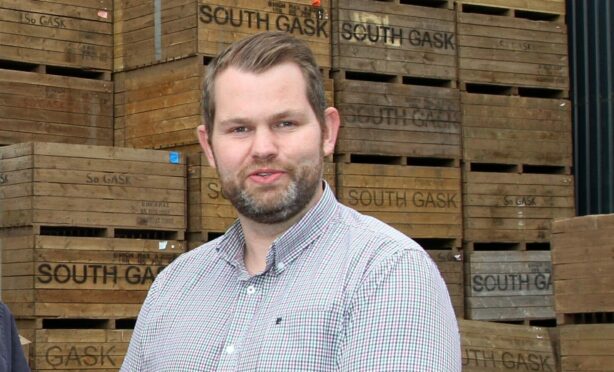Grampian Growers is upbeat about the seed tattie industry’s post-Brexit prospects.
They say they just need to crack the huge 12-year challenge of breeding a brand new potato to meet the demands of future global markets.
The co-op’s potato manager, David Murdie, believes global trade will be unaffected by the UK’s departure from Europe.
“We have a commodity we’re producing in Scotland that’s such high quality and in such high demand I don’t think Brexit will make any difference to the market,” he said.
However Grampian Growers traders admit they’re uncomfortable about Scotland’s reliance on a small concentration of international seed potato destinations.
The main market lies south of the border in England, but statistics show the Scottish seed trade’s heavy dependence on the Egyptian market, with 55,000 tonnes of the total seed export of 84,500 tonnes exported there this year. The next most important market is Morocco, which took 9000 tonnes.
The co-op is now ambitious to expand the range of countries on their books – and south east Asia has emerged as a top target.
Grampian Growers and their Bennett Seed Exports subsidiary believe huge opportunities exist in Thailand and Indonesia. They have already dipped a toe into the Thai market with a 125-tonne shipment and are optimistic that they can multiply that trade by 10 this year.
The company’s general manager, Sandy McGowan, is leading the SE Asia drive and says that while tonnages are currently modest, the potential to build on them is enormous.
“When you look at the export figures it’s obvious that as a business we need to be involved in something different,” he said.
“The key thing for us is to get boots on the ground. We’re focused on free varieties at the moment because they’re a means of delivering our own varieties into these markets in the future.”
The variety that is in demand in SE Asia is Atlantic which is tricky to grow to the high seed health standards demanded by importers, and Mr McGowan says it is being accepted because of Bennett Seeds’ strong reputation.
“Scotland and the Indonesian authorities have a cross compliance, intergovernmental agreement on standards, and the level of virus and skin surface disease allowed on the tuber is very tight – but nothing that is impossible to achieve here in Scotland,” said Mr McGowan.
Supporting all the co-op’s seed exports is a long-established network of Government agencies, leading institutes like the James Hutton Institute and top agronomy advice from SAC and Scottish Agronomy.
“Farmers are doing a first class job and there’s a huge team effort in Scotland,” said Mr Murdie.
“Nobody in any country in Europe is going to start up a potato industry with the logistics that we already have in Scotland. We’ve been doing it for 120 years and we have some very big advantages here.”
Meanwhile Grampian Growers are continuing to invest in the breeding of a new potato variety alongside their consortium partners, Skea Organics and Macclesfield-based E Park and Sons.
Each member of the consortium is investing the equivalent of £100,000 a year in the bid to find a variety which will meet the demands of the market and be easier for farmers to grow than some of the disease-prone varieties currently demanded by the supermarkets.
“When the breeding programme was first established, the initial aim was to find a smart looking white potato that was attractive to consumers,” said Mr Murdie.
“That’s still the case, but there’s a lot more scientific thought behind it now. It’s about potato cyst nematode resistance and free-living nematode resistance as well as the criteria that were there before.”
Sandy McGowan believes the target the new variety needs to hit is massive.
“We have a global market to aim at and we are looking for something that will work for all three businesses and the markets we cover,” he said.
“We’re simply looking for a potato that’s more successful than anything that’s currently out there; that will produce the yield, that will fry, that will work on a supermarket shelf and be suitable for export to north Africa,” he said.
“Or it could be something that would fulfil what we’re trying to achieve in SE Asia.”
nnicolson@thecourier.co.uk
